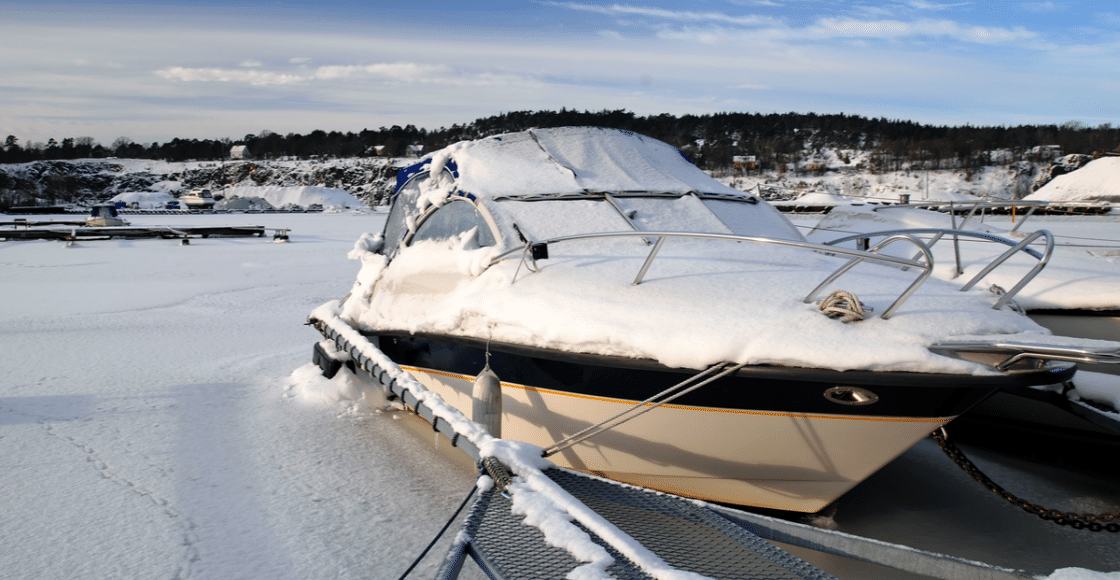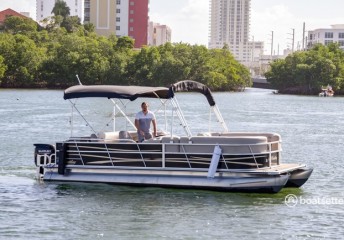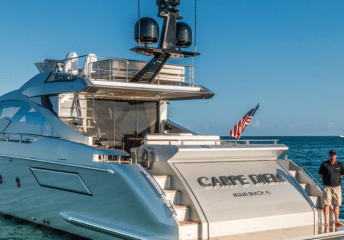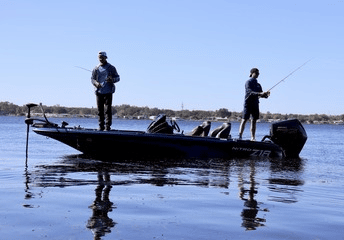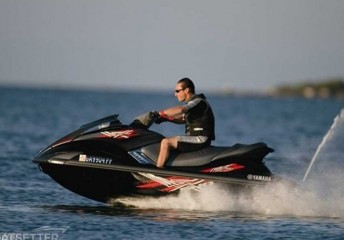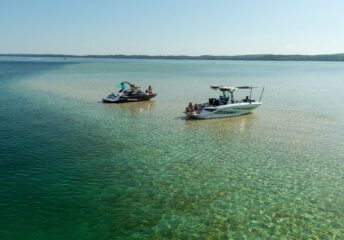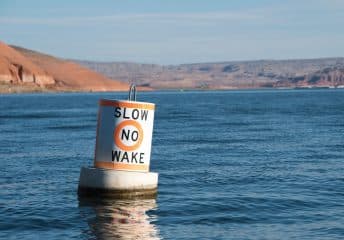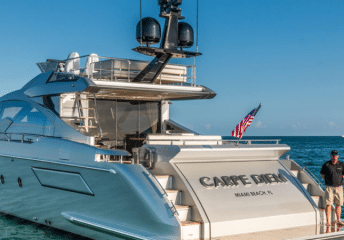Winter Boating Tips
Last Updated on August 17, 2023 by Boatsetter Team
Whether your home boating waters lie in Michigan, Florida, Utah, or Oregon, winter is a beautiful time. Of course, one will need to gear up a bit differently in Michigan than in Florida, but getting on the water any time of year is always an adventure in any part of the world.
A few precautions before going winter boating can help keep you safe. However, many are the same you follow when boating any time of year, with a few extras thrown in.
Being frostbitten is no fun, and it can happen as quickly in Florida as it can on the Great Lakes. So, when winter temperatures fall, and the winds are up, you must protect your extremities.
The following are winter boating tips to help you and your crew enjoy their time on the water when the temperatures fall to a brisk chill.
How do you operate a boat in the winter?
The extent of winter boat preparation should include a few extra clothes and boat safety checks for areas where the temperatures rarely fall below freezing. Even then, Florida, Texas, and the Gulf coast states can get very chilly, and some areas are prone to frost and freezing. So check the weather before setting out in your boat, no matter the time of year.
Many boaters use this time to have their boat’s oil changed, so get it done now. You will then be sure that everything is shipshape before taking it out in cold weather. A few hours of being stranded can be a big deal when you are out in the cold, so be sure your boat is in good shape before heading out on the water.
As an added means of keeping your boat in top condition, a good wash, and wax will protect your boat from the effects of winter weather. If you trail your boat, ice from the road can end up on your boat’s hull and topsides. Waxing your boat before winter will help keep your gel coat from being decimated by winter road grit.
Whether spending a cold day chasing a largemouth bass or merely enjoying a leisurely cruise, you need enough clothing to stay warm. That is unless you are in a boat with a heated cabin.
Can you leave a boat in the water over winter?
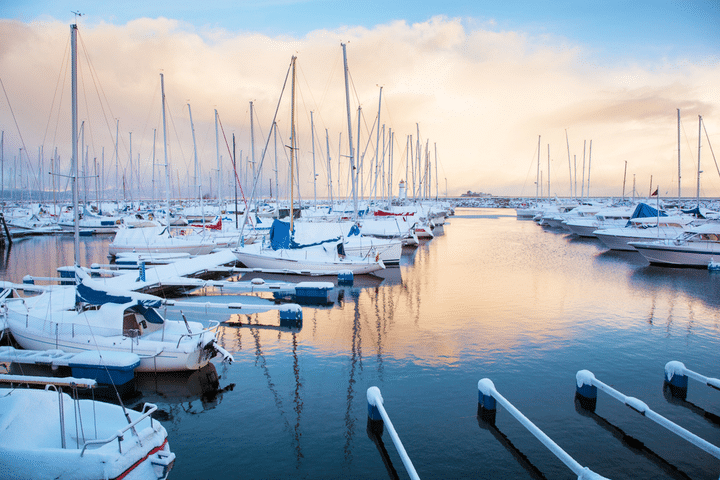
Yes, you can, even in areas where the water ices over. However, you need to prepare for it if you want your boat to be ready to go when you are. You will also need to inspect it often and be sure to protect it when winter storms roll in.
Most boaters winterize their boat in some way, whether they leave it in the water or not. If you live aboard a boat, you are likely aware of the dangers of freezing water lines, fuel lines, and ice buildup on the deck.
More boats sink at the dock than they do out on the water. A boat sinking at the dock can be due to a faulty bilge pump that fails to remove water that has leaked into your boat, and another reason can be a leaking through-hull fitting. One that is faulty can fail, and water can enter your boat and sink it if the bilge pumps cannot handle the influx of water before you find the problem.
Some through-hull fittings are above the waterline. If a boat gets a deck loaded up with ice or a tidal shift that lodges your boat under the dock, these fittings can go underwater, filling your boat until it sinks.
A failed bilge pump can also be the culprit when a boat sinks. Because those through-hull fittings do precisely that, they go through the hull, they will sometimes leak or completely fail, and a bilge pump can save the day until you arrive if it works.
Constant attention to the maintenance of your boat is warranted if you winterize your boat in the water. This is especially so if you live in an area where the temperatures fall below freezing.
Extreme cold weather can affect your boat’s batteries, fuel, and water system. Therefore, you need to inspect your engine, fuel, and water system frequently and before leaving the dock, every time you go boating in the winter months.
How to stay warm while onboard
You know what is worse than being cold or wet is being cold and wet! In addition, it can be dangerous, as it can lead to hypothermia.
Dressing for boating is the key to enjoying your day on the water. Just as you would for any other winter sport, you need to layer up your clothing and do so while dealing with a PFD (personal floatation device).
Fortunately, life vests have evolved right along with the designs of boats. Jackets are available that do double duty as life vests. Their built-in floatation allows you to move freely, look good, and keep you safe if you go overboard.
For sailors driving into the waves, ice anglers, and others around freezing water during the winter months, a survival suit might be best for you when on the water. Wind can make the air feel colder and will sap your body heat and strength unless you are prepared for its onslaught.
Items to keep you warm aboard:
Layer your clothes, starting with thin layers first. Choose materials that dry quickly, like wool and synthetics. Your outer layer of clothing should be wind and water-resistant, and you should avoid cotton clothing altogether, if possible.
Waterproof boots over wool socks will keep your feet warm. Be sure to take extra socks with you when going out on the water in the winter. Wet feet can make you cold all over, and you will want to be able to change them several times, if necessary.
Wear a lined waterproof hat, cap, or watch cap to keep your head warm that covers your ears, too. Cover your eyes with sunglasses or ski goggles if you have them, and protect your mouth and nose, too, to keep from getting windburn.
Neoprene gloves are warm, dry, and will allow you to move your hands freely. Maintaining your agility while staying warm can be a challenge, but it is worth the trouble once you get out on the water. Your boat may not have a cabin, but hand and foot warmers can be a day changer when out in the cold and are handy to have aboard.
Are you ready to get out in the cold?
Boating in the winter is invigorating. For sailors, the winds aren’t as unpredictable as they can be in the summer months. However, storms can blow in unannounced, and winter storms, coupled with the cold, can be a dangerous combination if you are unprepared.
Whatever type of boat you use to get on the water, prepare yourself and it before leaving the dock. If you ensure your boat is maintained and has the proper equipment with you, your day on the water will be uneventful.
However, if you fail to keep up with your boat’s maintenance, rest assured that extreme cold weather will find your boat’s weaknesses.
No matter the time of year, but especially in the winter due to the cold, have a float plan before setting off on any water-bound adventures. A float plan essentially lets someone know where you are going and when you will return. It will give the authorities a place to start if you and your crew do not return when you say you are. Even the best-maintained boats can have problems.
Boat Maintenance is a big expense – renting your boat can help pay the costs.
Whether boating excursions happen in the lakes of North America, the Gulf of Mexico, or the Mediterranean, maintaining a boat is expensive.
Renting your boat with Boatsetter can help offset some of your costs.
By renting your boat, you will have the opportunity to meet new people and even act as captain of your boat, if you so choose. Boat owners worldwide have their boats listed with Boatsetter, and you can rent out yours, too. No matter the time of year, someone out there would like to get out on the water!

Boatsetter empowers people to explore with confidence by showing them a world of possibility on the water. Rent a boat, list your boat, or become a Boatsetter captain today.
